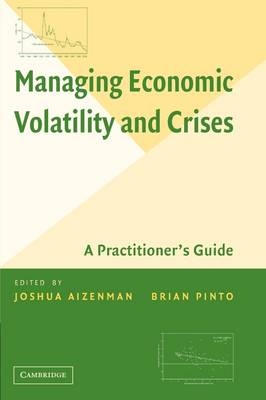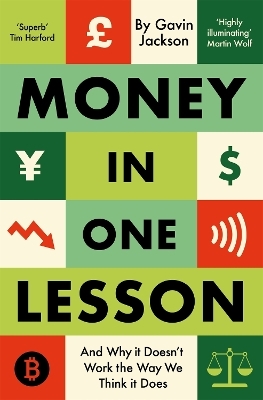
Managing Economic Volatility and Crises
Cambridge University Press (Verlag)
978-0-521-16859-5 (ISBN)
Economic volatility has come into its own after being treated for decades as a secondary phenomenon in the business cycle literature. This evolution has been driven by the recognition that non-linearities, long buried by the economist's penchant for linearity, magnify the negative effects of volatility on long-run growth and inequality, especially in poor countries. This collection organizes empirical and policy results for economists and development policy practitioners into four parts: basic features, including the impact of volatility on growth and poverty; commodity price volatility; the financial sector's dual role as an absorber and amplifier of shocks; and the management and prevention of macroeconomic crises. The latter section includes a cross-country study, case studies on Argentina and Russia, and lessons from the debt default episodes of the 1980s and 1990s.
Joshua Aizenman is Professor of Economics at the University of California, Santa Cruz. Prior to his appointment at UCSC, he was Champion Professor of International Economics at Dartmouth College. Professor Aizenman's other affiliations have included teaching and research positions at the University of Pennsylvania, the University of Chicago Graduate School of Business, and the Hebrew University in Jerusalem. He has held consultancies with the International Monetary Fund, the World Bank, the Inter-American Development Bank, and the Federal Reserve Bank of San Francisco. His research covers a range of issues in open economy including commercial and financial policies, crises in emerging markets, foreign direct investment, capital controls, and exchange rate regimes. Professor Aizenman also serves as a Research Associate for the National Bureau of Economic Research. Brian Pinto is Lead Economist in the Economic Policy Department, Poverty Reduction and Economic Management Network, at the World Bank, Washington, DC, where he has worked for more than 20 years. He has had diverse assignments, including in Treasury operations, the International Finance Corporation, the Europe and Central Asia Region, and various central departments. Dr Pinto lived and worked in Poland at the start of its momentous reforms (1990-92) and Russia just before its 1998 crisis and subsequent recovery (1998-2001). His areas of expertise include analytical and practical country-based experience in macroeconomic crises and recovery, public debt sustainability analysis and transition economics. His publications have appeared in numerous professional journals.
Contributors; Acknowledgements; Foreword; Overview Joshua Aizenman and Brian Pinto; Part I. What Is Volatility and Why Does It Matter?: 1. Volatility: definitions and consequences Holger Wolf; 2. Volatility and growth Viktoria Hnatkovska and Norman Loayza; 3. Volatility, income distribution, and poverty Thomas Laursen and Sandeep Mahajan; Part II. Commodity Prices and Volatility: 4. Agricultural commodity price volatility Jan Dehn, Christopher Gilbert, and Panos Varangis; 5. Managing oil booms and busts in developing countries Julia Devlin and Michael Lewin; Part III. Finance and Volatility: 6. Finance and volatility Stijn Claessens; 7. Evaluating pricing signals from the bond markets John J. Merrick, Jr; Part IV. Managing Crises: 8. Managing macroeconomic crises: policy lessons Jeffrey Frankel and Shang-Jin Wei; 9. Lessons from the Russian crisis of 1998 and recovery Brian Pinto, Evsey Gurvich, and Sergei Ulatov; 10. Argentina's macroeconomic collapse: causes and lessons Luis Servén and Guillermo Perry; 11. Default episodes in the 1980s and 1990s: what have we learned? Punam Chuhan and Federico Sturzenegger; Technical appendix Viktoria Hnatkovska; Index.
| Erscheint lt. Verlag | 14.4.2011 |
|---|---|
| Zusatzinfo | Worked examples or Exercises |
| Verlagsort | Cambridge |
| Sprache | englisch |
| Maße | 152 x 229 mm |
| Gewicht | 890 g |
| Themenwelt | Wirtschaft ► Betriebswirtschaft / Management |
| Wirtschaft ► Volkswirtschaftslehre ► Finanzwissenschaft | |
| Wirtschaft ► Volkswirtschaftslehre ► Makroökonomie | |
| Wirtschaft ► Volkswirtschaftslehre ► Mikroökonomie | |
| ISBN-10 | 0-521-16859-7 / 0521168597 |
| ISBN-13 | 978-0-521-16859-5 / 9780521168595 |
| Zustand | Neuware |
| Haben Sie eine Frage zum Produkt? |
aus dem Bereich


